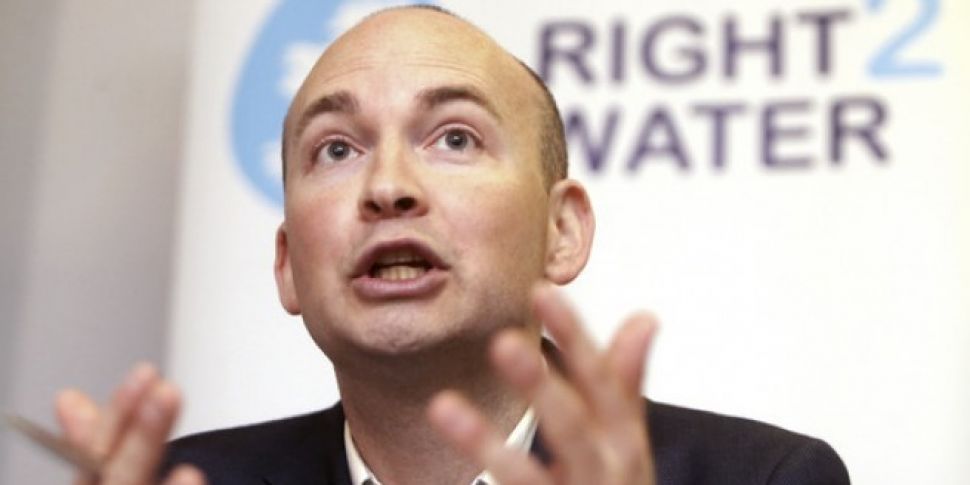Water is the zombie issue of the Fine Gael government – every time you think it’s dead, it comes back to life to bite you.
Ever since Paul Murphy, Richard Boyd Barrett and their merry band of followers started their insurgent campaign, water has become a central issue in politics.
But while their slogans might be catchy, in terms of actual policy they leave a lot of questions to be answered. Like...
1. How are we going to fix our failing water system?
Our water system is literally bursting at the seams.
We’re wasting a huge amount of water. The 2014 Oireachtas report on water provision found we’re losing around 41% of our water annually due to leaky and inefficient pipes, which badly need to be replaced.
Significant portions out our network were put in during the 1800s, when lead and copper piping was in fashion. According to the Department of the Environment, 5% of Ireland’s households are connected to lead pipes, which have been proven to cause brain damage and other health problems.
Our system is barely covering our current needs. Like other small cities around the world, Dublin's water system should have an additional capacity of 15-20%. But in reality hasn’t got a drop to spare. This leaves us vulnerable when our infrastructure disintegrates further, or if pipes burst during cold weather.
Additionally, over 25% of Water Supply Zones in the country are currently operating beyond their design capacity limits. And as our population continues to grow, we’re only going to put more strain on the system.
That’s not even mentioning the quality of water that is being delivered. In 2014, there were 199 boil water notices and 15 water restriction notices in place, affecting 205,516 people. This was up from 35,831 people the year before.
Currently the Government is putting around €1bn a year into our water system, and that’s just to keep it chugging along. To make the kinds of repairs necessary, we would need at least an extra €600m annually.
Where are we going to get the money from? We already know that the answer given by Right2Water, ‘general taxation’, won’t work. That’s the system we’ve had for years that’s resulted in under-investment and a tainted water supply.
So how are we going to pay for it?
2. How are we going to prevent water shortages in the future?
We may think that water is not something we need to worry about, given we get plenty of rain.
But we already saw shortages in Leinster in 2013, and have seen issues with Dublin during dry spells, due to the lack of spare capacity.
As well as the water seeping out of our national pipes, water is also being lost from leaks within households. Many of these leaks went unidentified until metering was put in place.
The best way to get people to care about wasteful usage is to charge them for it. If it’s free, people won't think of water as a valuable resource.
Do Right2Water have any other suggestions for how to get people to cut down on their water usage?

'Conserve Water' sign in Dublin during shortage in 2010 (Photocall Ireland)
3. What are they going to do about the EU water directive?
It’s an uncomfortable fact, but our legal obligation is the elephant in the room.
Because however much it would cost the State to put to get our water infrastructure up to date, it’ll cost them even more to pay the millions in fines we’ll owe to the EU if we don’t introduce some form of water charges.
Article 9 of the directive requires member states to:
- Have water-pricing policies that provide adequate incentives for users to use water resources efficiently
- To recover the costs of water services, taking into account the 'polluter-pays principle'
This doesn't leave much wiggle room in terms of introducing water charges.
We’re already being taken to court over failing to comply with the waste water directive.
So what do Right2Water propose to comply with the directive, beyond just ignoring it?
And a personal question from me: How can they justify not having water charges?
It’s a matter of fairness. How can they expect people who avoid using excess water to pay money into general taxation to subsidise people who don’t care at all?
At least when we briefly had the charges system, people who were under boil notices didn’t have to pay for a utility that wasn’t available to them.
Paul Murphy argues that water charges “represent the commodification of a vital human need.”
Food is a vital human need, and yet we pay for that. We don’t expect people to get food, process the food and deliver food to our house free of charge.
We need to pay water charges because it costs money to deliver water.
If the group really think water is important, don't they think it’s worth investing in?









